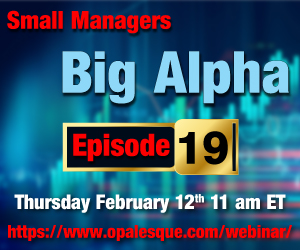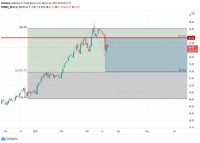|
Opalesque Industry Update - Morningstar, a provider of independent investment research, today published the second chapter of its biannual Global Investor Experience (GIE) report. The report, now in its sixth edition, assesses the experiences of mutual fund investors in 26 markets across North America, Europe, Asia, and Africa. The "Regulation and Taxation" chapter evaluates the regulatory and tax frameworks that mutual fund investors face, assigning grades of Top, Above Average, Average, Below Average, and Bottom to each market. Morningstar gave Top grades to the Netherlands, Sweden, and the U.K., denoting these as the most investor-friendly markets in terms of regulation and taxation. Conversely, Morningstar assigned Below Average grades to Australia, Canada, China, Japan, New Zealand, and the U.S., as fund markets where the regulatory and tax schemes need to improve. Morningstar did not assign a Bottom grade to any market, as every market in the study provides basic protections for investors. "When it comes to regulation and taxation in the fund industry, we are looking for policy that ultimately empowers investor success, like tax incentives that encourage individual investment and effective regulation of funds that promotes transparency and limits misleading statements and conflicts of interest," said Aron Szapiro, head of policy research at Morningstar and a co-author of the study. "We found that regulators in the U.S. and Canada are generally running efficient systems. However, the pace of reform there hasn't kept up with the rest of the world, explaining why the U.S. and Canada continued to receive a Below Average grade for regulation and taxation in our study." "Since our last report in 2017, the trend towards strong regulation that protects mutual fund investors has remained intact. We're seeing more markets take steps to motivate citizens of all backgrounds to invest for their futures through special tax incentives or regulations that encourage lower fees, like mandatory disclosures," said Andy Pettit, Morningstar's director of policy research, EMEA, and co-author of the study. Highlights include: The Netherlands, Sweden, and the U.K. earned top grades in part because they provide strong incentives for ordinary people to invest, although none of the countries offer the overall best tax systems for ordinary investors. The U.K. continued the expansion of its auto-enrollment program and together with the Netherlands stood out for banning embedded commissions on most sales, and Sweden stood out for having strong governance and being a frontrunner in ESG disclosures. Every European country covered by the MiFID II regulations earned at least an average grade as the regulation spurred needed reforms in areas like soft dollar commissions and increased transparency. Australia, Canada, New Zealand, and the United States lagged other markets, as they have in previous studies. These countries have adequate regulation around mutual fund operations and distribution, meeting basic standards, and the experience for investors can be quite good. Despite that, they fall short of the standard set by other markets that govern conflicts of interest and incentivize investing. In addition, Australia, Canada, and the U.S. all lag on tax policy compared with other markets in the study, creating distortions and disincentives to invest. Japan fell to Below Average despite making some positive strides. Japan fell to Below Average from Average mainly due to Morningstar's revised methodology putting more emphasis on mutual fund operations and distribution policies, an area where other markets have taken major steps to shore up their regulations in recent years. Japan doesn't mandate disclosure of third-party research costs or distribution costs paid out of fund assets, and there is no requirement to disclose advisors' or distributors' conflicts of interests. China falls short in encouraging people to save for retirement and opening fund markets to promote greater choice. China only has a state-managed pension scheme and no other mandated supplementary defined contribution system. Additionally, the regulation of third-party research cost disclosure and soft dollars is weak. Although China has made efforts to further open up its capital market, fund choices are mostly limited to locally domiciled funds. ETFs' continued growth has given investors more choice in most markets, though distributors still have more incentive to offer open-end funds in some markets. In addition, the tax treatment of ETFs can vary. For example, in the U.S., the choice is distorted by differing tax treatments that are advantageous to ETFs, while, in New Zealand, ETFs are tax-disadvantageous for lower earners. While funds in many markets continue to levy distribution fees through a fund's expense ratio, there have been some positive steps to reduce this practice. For instance, commissions have been banned in Australia, the Netherlands, and the U.K. In Hong Kong, intermediaries that receive monetary or nonmonetary benefits from fund issuers can no longer refer to themselves as independent. Of the 26 markets, only Singapore and Hong Kong do not tax fund investors at all. Many markets exempt fund investors from capital gains while they hold a fund but tax at least some of the fund's income. The U.S. and Australia are notable exceptions where taxes are due on capital gains incurred by the fund, regardless of whether an investor has sold the fund or not. Article source - Opalesque is not responsible for the content of external internet sites |
Industry Updates
Morningstar publishes global study of regulation and taxation in the fund industry, finding regulation to be adequate, but not always proactive
Tuesday, April 28, 2020
|
|





 RSS
RSS










